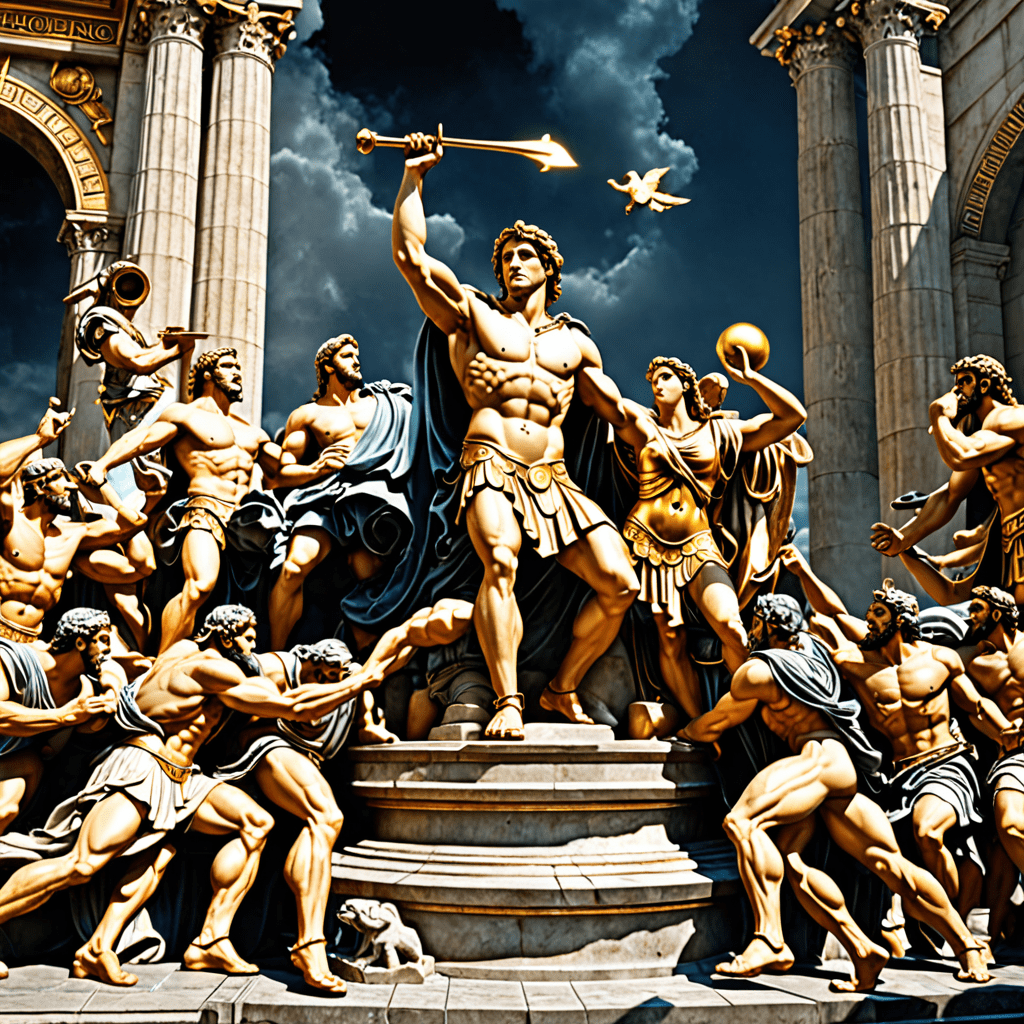The Symbolism of Success and Failure in Roman Mythology
In Roman mythology, the concepts of success and failure are intricately woven into various myths and stories, often serving as symbolic representations of human experiences, virtues, and vices. Let’s delve deeper into how success and failure are portrayed in Roman mythology.
Success in Roman Mythology
Success in Roman mythology is often associated with traits such as courage, determination, and divine favor. Heroes like Hercules, known for his exceptional strength and valor, exemplify success through overcoming challenges and achieving glory. Deities like Fortuna, the goddess of luck and fortune, symbolize the capricious nature of success, highlighting how fate plays a significant role in one’s achievements. Victories in battles, quests, or challenges are celebrated as manifestations of divine approval or individual merit, emphasizing the importance of ambition and perseverance in attaining success.
Failure in Roman Mythology
Conversely, failure in Roman mythology is portrayed as a consequence of hubris, foolish decisions, or divine punishment. Characters like Icarus, who fell to his death due to arrogance and disobedience, serve as cautionary tales about the perils of overreaching and ignoring warnings. Deities like Nemesis, the goddess of retribution, embody the concept of failure as a form of divine justice for wrongdoing or moral transgressions. Failures in quests, relationships, or endeavors are often attributed to character flaws or lack of foresight, underscoring the critical importance of humility and wisdom in avoiding downfall.
The Dichotomy of Success and Failure
While success and failure are often depicted as opposites in Roman mythology, they are also viewed as interconnected forces that shape the tapestry of human existence. Characters like Oedipus, known for both triumph and tragedy, exemplify the complex interplay between success and failure in the lives of individuals. The Romans believed in the concept of virtus, the combination of courage, honor, and wisdom, as essential qualities for navigating the highs and lows of life’s journey. Success without humility or failure without redemption is seen as incomplete processes that lack the richness of experience and growth.
Lessons from Roman Mythology
Ultimately, the symbolism of success and failure in Roman mythology teaches us valuable lessons about the fragility of prosperity, the inevitability of setbacks, and the transformative power of resilience. By embracing the stories of heroic triumphs and tragic falls, we gain insights into the complexities of human nature and the enduring quest for self-mastery. Success and failure are not just external outcomes but inner reflections of our virtues and vices, guiding us on the path towards greater wisdom and enlightenment.
FAQ About The Symbolism of Success and Failure in Roman Mythology
What role do success and failure play in Roman mythology?
Success and failure in Roman mythology often symbolize larger themes such as fate, power, and consequences. Success can reflect virtues like strength, intelligence, and bravery, while failure may represent hubris, ignorance, or weakness.
Which Roman gods or goddesses are associated with success?
Roman gods like Jupiter, Minerva, and Fortuna are often linked with success. Jupiter symbolizes power and authority, Minerva represents wisdom and strategy, while Fortuna embodies luck and fortune.
On the contrary, which deities are linked to failure in Roman mythology?
Deities like Nemesis, Discordia, and Mors are associated with failure in Roman mythology. Nemesis represents divine retribution, Discordia embodies strife and discord, and Mors signifies death and endings.
How do Roman myths illustrate the consequences of success and failure?
Roman myths often showcase the rewards of success, such as glory, honor, and divine favor, as well as the consequences of failure, such as punishment, downfall, and divine wrath. These stories serve as moral lessons on the importance of virtues and the dangers of vices.




